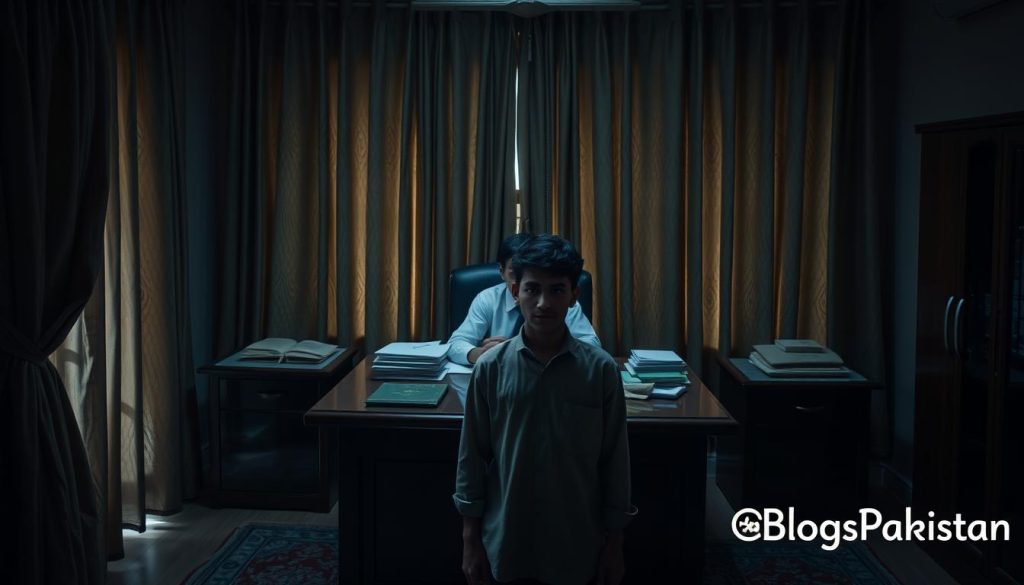Pakistan’s National Database and Registration Authority (Nadra) recently took away the citizenship of a man known as the “Chaiwala.” This move has caused a big stir in the country. The man, born in Pakistan to Afghan refugee parents, has a government-issued birth certificate.
He wanted a Computerized National Identity Card (CNIC) under Section 4 of the Pakistan Citizenship Act, 1951. He argued that he has the right to citizenship by birth.
Key Takeaways
- Nadra’s decision targets a man widely recognized as a “Chaiwala,” amplifying public attention.
- The case hinges on citizenship rights under Pakistan’s 1951 law, highlighting gaps in documentation for refugee descendants.
- Citizenship controversy centers on whether birth certificates alone suffice for legal recognition.
- The petitioner’s legal battle questions Nadra’s authority and administrative processes.
- This case reflects broader debates over citizenship eligibility in Pakistan.

Introduction: Setting the Stage for a Citizenship Controversy
A young man is fighting to prove he belongs in Pakistan. His case centers on a birth certificate from the government. This document is key to his fight for citizenship rights.
Background of the Case
The man was born to Afghan refugee parents in Peshawar. He grew up caught between two countries. His family’s refugee status made his legal status unclear.
Yet, his birth certificate, issued in 2003, lists Lahore as his birthplace. This document is central to his birth certificate validation claim.
Significance of the Petition
Legal experts highlight three important points:
– The certificate’s official stamp and serial number
– Its match with Pakistan’s 1951 citizenship laws
– Its role in refugee rights disputes
Some say birth certificate validation questions traditional views of citizenship. The case shows how governments deal with old refugee policies and new ID systems.
Examining the Petition Process and Legal Claims
The petitioner’s case relies on Pakistan Citizenship Act rules. They use Section 4 of the 1951 law to show they are eligible for citizenship and a Computerized National Identity Card (CNIC). Courts check if the claims match the law and the steps to follow.

| Section | Description | Relevance |
|---|---|---|
| Section 4 | Citizenship by birth for individuals born in Pakistan after 1947 | Core basis for the petitioner’s claim |
| Section 6 | Procedures for citizenship documentation | Governs CNIC issuance requirements |
Courts look at petitions in three main steps:
- They check the evidence of where the person lived and was born.
- They see if the person meets the Pakistan Citizenship Act rules.
- They decide if the delays or denials were fair.
Each step makes sure the claims fit the law.
Lawyers often point to Pakistan Citizenship Act sections to make their points stronger. Judges look closely if the applicants qualify for citizenship based on the law. The goal is to make sure the rules are followed but also protect people’s rights.
Legal Framework and the Principle of Jus Soli
The case centers on Pakistan’s laws about citizenship. The Pakistan Citizenship Act, 1951 is key to understanding nationality in the country.
Overview of the Pakistan Citizenship Act, 1951
Section 4 of the Act clearly states that citizenship by birth is given to those born in Pakistan after 1947. This is if their parents are Pakistani or have lived legally there. This rule follows the jus soli principle (right of the soil).
Understanding Citizenship by Birth
Many countries have their own rules for citizenship by birth. Here’s a look at how different countries handle it:
| Country | Citizenship by Birth Policy |
|---|---|
| United States | Granted universally |
| Canada | Granted with exceptions for foreign diplomats |
| India | Conditional based on parent citizenship |
| UAE | Restricted to UAE nationals’ children |
In Pakistan, the Act outlines when citizenship is given based on where you were born. This is different from jus sanguinis systems, which focus on your parents. The person in question believes they meet the criteria in Section 4.
Court Observations and the Mandated Hearing
The court has made a big decision. They ruled that the challenge against the citizenship revocation is maintainable. Judges want everything to be clear, so they ordered NADRA to hold a hearing in 30 days. This shows how important the judicial review process is for fairness.

- A deadline for NADRA to respond to the petitioner’s claims
- Requirement to provide documentation supporting their decision
- Guaranteeing the petitioner’s right to present evidence
The judicial review process makes sure decisions are legal. Here’s how it works in citizenship cases:
| Step | Description |
|---|---|
| 1. Petition Submission | Petitioner files a formal challenge |
| 2. Court Scrutiny | Judges assess the case’s validity |
| 3. Agency Response | NADRA must justify its actions legally |
| 4. Hearing | Both parties present evidence and arguments |
“Every citizen deserves a fair opportunity to contest administrative decisions,” the court stated in its order.
The court’s order for a timely hearing is crucial. It shows how important due process is. This ruling also highlights the judicial review process as a protection against unfair actions. Now, NADRA must follow these legal steps, ensuring fairness in citizenship cases.
The Pivotal Role of Nadra in Citizenship Decisions
NADRA plays a key role in shaping lives in Pakistan. It guides every step in processing claims. This is especially true in cases where government hearing orders are involved.
Nadra’s Responsibilities and the Hearing Process
NADRA follows strict rules under the law. Here’s what happens:
- Citizenship petitions are reviewed with evidence and documents.
- Government hearing orders make NADRA schedule hearings for disputed cases.
- Officials check claims against the Pakistan Citizenship Act, 1951 standards.
Implications for the Petitioner’s Claim
The outcome depends on NADRA’s findings. If evidence matches citizenship criteria, the claim might move forward. But if there are gaps, it could be rejected. This ensures fairness but shows how decisions affect people seeking legal rights.
For this petitioner, the hearing’s results could change their status in Pakistan.
Government Agencies and Their Limitations in the Case
Courts have set clear boundaries for government agencies in this citizenship dispute. A court order now bars any coercive government measures until Nadra completes its review. This protects individuals from unfair treatment during legal proceedings.
Preventing Coercive Measures
“Agencies must not take punitive actions against the petitioner,” the court emphasized in its ruling.
This directive ensures agencies cannot pressure individuals while cases are unresolved. Steps like arrests or fines are now prohibited until the process concludes.
Ensuring Fair Administrative Processes
| Requirement | Action Required |
|---|---|
| Documentation | All decisions must be recorded and reviewed |
| Transparency | Agencies communications must be publicly accessible |
| Timeliness | Deadlines set to prevent prolonged delays |
These rules enforce accountability. They ensure agencies follow lawful procedures without overstepping their authority. Fairness remains central to every administrative step.
Conclusion
The case shows how legal steps affect who gets citizenship. Nadra plays a key role in making sure decisions are fair. Courts told Nadra to use Pakistan’s laws, like the 1951 act, to review claims.
This balance between laws and individual rights is crucial. Every step, from filing a petition to a hearing, impacts people’s lives. Nadra must apply laws fairly and consistently.
Transparency is key for public trust in Nadra. When they follow the rules, people understand their rights better. This case will guide how well Nadra handles future citizenship disputes.
Knowing about these steps is important. Legal rules and Nadra’s duties protect everyone’s rights. Nadra’s actions in this case set a standard for the whole country.










